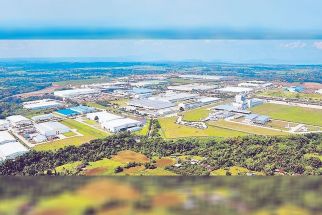Massive support program for pork producers pushed
MANILA, Philippines — Pork producers are urging the government to roll out a massive support program to raise local production – instead of lowering tariffs to bring in more imported pork products—to ensure sufficient supply and ease inflation.
The recent proposal of meat importers to further slash tariffs on pork imports over a five-year period is “very unacceptable” for the local pork industry, Pork Producers Federation of the Philippines president Rolando Tambago said in a text message to The STAR.
“The true policy direction of President Marcos related to food security and sufficiency will now be known amongst our local farmers and consumers if he approves the request of meat importers and traders group to extend much lower tariff,” he said.
“The best option is local production with massive support from the government across pork value chain, including but not limited to favorable policies,” the industry official said.
The Meat Importers and Traders Association (MITA) has appealed for an executive order (EO) that would further reduce the import duty rates on pork to five percent in-quota and 15 percent out-quota for five years.
The MITA said the local industry’s self-sufficiency cannot be achieved overnight and the Philippines would need to rely on imports in the short to medium term to augment supply.
However, Tambago said the local hog industry has started to recover from the African swine fever (ASF) since 2019 and despite the effects of the pandemic, the impact of the Ukraine-Russia conflict and the massive pork importation due to extended reduced tariff on pork.
In May last year, then President Rodrigo Duterte issued EO 133, which increased the minimum access volume (MAV) for pork meat from 54,210 metric tons (MT) to 254,210 MT for 2021, to augment local pork supply and stabilize prices in the market.
Duterte also signed EO 134, which provides that in-quota pork imports or those under the MAV are imposed a 10 percent tariff for three months and then 15 percent in the remaining nine months. This is lower than the original rate of 30 percent.
The EO also slapped out-quota pork imports with a 20 percent tariff for the first three months, then to 25 percent in the remaining nine months. This is lower than the original tariff of 40 percent.
The 15 percent in-quota and 25 percent out quota tariff rates for pork were extended until Dec. 31 this year after Duterte signed EO 171 in May.
However, the EOs—which reduced pork tariff and increased importation—were not able to deliver the promise of cheaper retail imported pork in the markets and resulted in government losing potential revenues for its programs, Tambago said.
“Softened pork price in wet markets now is a result of low demand and increased local production. It should be known to everyone that due to the series of EOs issued by the previous administration, the government lost huge…tax revenues in the billions of pesos, which could have been used today to finance government economic recovery programs,” he said.
And as global pork supply is projected to drop, all the more reason the government should help to boost local production to meet the country’s requirements.
“World pork production trend has been going down and it seems it will continue. Then where else are we going to import if government policy is geared always to importation? It doesn’t align to food security and sustainability,” Tambago said.
Moreover, if government will allow MITA’s request, more local producers will be discouraged, which could lead to reduced production.
- Latest
- Trending


























